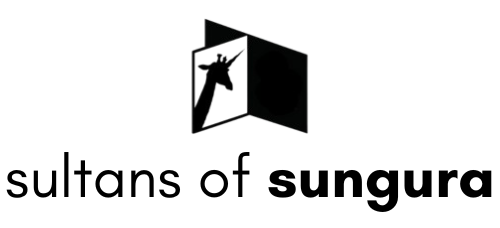Men of letters are often at home at the base of the class pyramid.
Figureheads of world literature, notably Leo Tolstoy, Emile Dickinson, William Blake and Dambudzo Marechera, invoked poverty and isolation to make a statement.
The occasional appearance of a writer-tramp who defies convention and plies his trade from the peripheries is a familiar phenomenon on the literary arena.
Poverty is, however, poised to go staplefare across the literary community this time not by design but due to book piracy.
A horde of Sean Timbas is laughing all the way to the bank, having plundered into the painstaking labours of authors and publishers.
Whereas it was formerly an optional condition, often the preserve of mystics, radicals and dissidents, more writers might be reduced to a ramshackle existence as illegal book barons fleece them of their dues.
The local publishing industry is being ripped off by piracy and stern measures must be entered into force to combat the vice.
Book piracy involves the replication of copyrighted literature through scanning, photocopying printing and soft-duplicating of books in hard or electronic format for profit at the expense of publishers and authors.
“There is a downstream market which is benefiting from illegal sale of intellectual property at the expense of the rightful owners,” author, academic and ZIBF chairperson Musaemura Zimunya told The Herald.
“The pirates are replicating copyrighted works in large volumes and peddling them in the streets.
“It is a crime that kills the incentive to create and muzzles prospective voices who withhold their efforts for out of fear of wasted labour and expenditure.
“These outlaw barons have got their ears to the ground. As soon as ZIMSEC literature set-texts are out, they rush to grab the original copies and duplicate them en-masse.
“Unlike the publishers, they do not invest anything in the work. They just plunder into the labour of authors and make a living out of it.
“The pirates contribute nothing to the public fiscus whereas authentic publishers commit a share of their profits to ZIMRA,” said Zimunya.
National Arts Council of Zimbabwe chairperson Elvas Mari said: “There is no development and authors are deprived of their economic and social benefit.
“The best way to combat piracy is embark on education of communities, artists, the law enforcement agencies and judiciary as well as enforcement of the law by prosecution as well as legislating for stiffer sentences on the convicted.
“Issues of pricing and accessing of the arts products is also important to discourage people from buying less quality products. There are many strategies but the above are the important ones,” he said.
Programs manager at Write Africa Trust Lawrence Hoba said: “Book piracy is a two-edged sword, which may be one side sharper than the other. When you look at it from the author or publisher’s perspective, then it is clearly a loss of revenue.
“Given that few Zimbabwean authors really make a killing for their works, the effect might be worse for publishers who would have invested funds in getting the books published.
“If you look at it from the perspective of a person who promotes reading, then, it is one more book in another reader’s hands, which is not so bad after all.
“But then, we should explore what is causing the piracy. I have often raised the query with many book industry stakeholders whether our books not overpriced.
“I know, for instance, you can get a 50-page book printed in China and landed in Zimbabwe for less than $2 and yet you find the same book being sold for not less than $10. How is that justifiable?
“The pirate who runs copies unlawfully can produce that same book for maybe $4 or even less so it is expected of the economically buyer to purchase the cheaper products as long as they deem that they we get the same equitable service as the higher priced one.
“This must be a wake-up call for everyone to seriously consider how we can ensure that original books get to the final consumer at an affordable price.
“After all, most people would rather prefer the nicer looking product, over the pirated copies if their prices are within a comparable range.
Spoken word poet Mbizo Chirasha said: “One of the most important things is to enact laws that are serious on piracy. The new ministers in education and culture must put in place stringent policies that guard against the vice.
“The people promoting piracy must be locked and there should be efforts to increase methods of livelihood by the new government to combat the varied forms of moral decadence and law-breaking in the country,” he said.
“Piracy is even worse for authors than it is for musicians. Musicians can gain revenue through live shows and royalties, but if a book is pirated through photocopying or any other means, how does the author make money?” said Media Studies academic Blessing Jona.
“Authors might end up resorting to electronic books, which are highly encrypted with powerful codes such that they are only accessed on line by those who subscribe to the books,” Jona said.
“We are in an age where it has become difficult to combat piracy. The Internet makes all things possible, and there is no policing of the replicating of electronic books,” said UK-based author Spiwe N. Harper.
“It could be even more imperative to go back to the traditional kind of book but that does not reach many people as much as the electronic books do. Stringent measures must be effected to protect intellectual property,” she said.
“Writers find book piracy demotivating. Publishers find themselves with large warehouses fully stocked with immoveable reading materials,” author, critic and editor Tinashe Mushakavanhu recently wrote in Panorama.
The Copyright Act was passed in 1966 and has been amended several times but piracy remains rife, with critics citing lukewarm government commitment to combat the vice.

